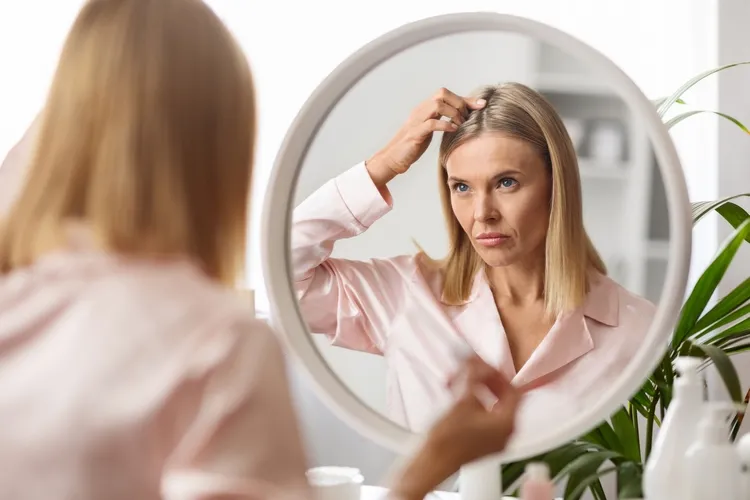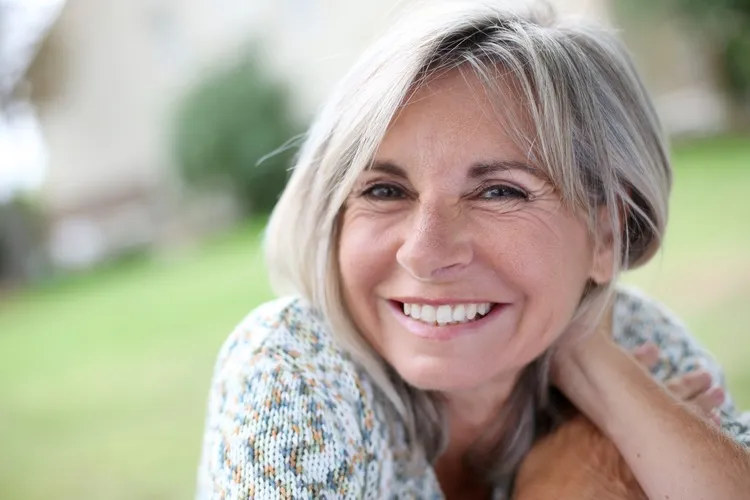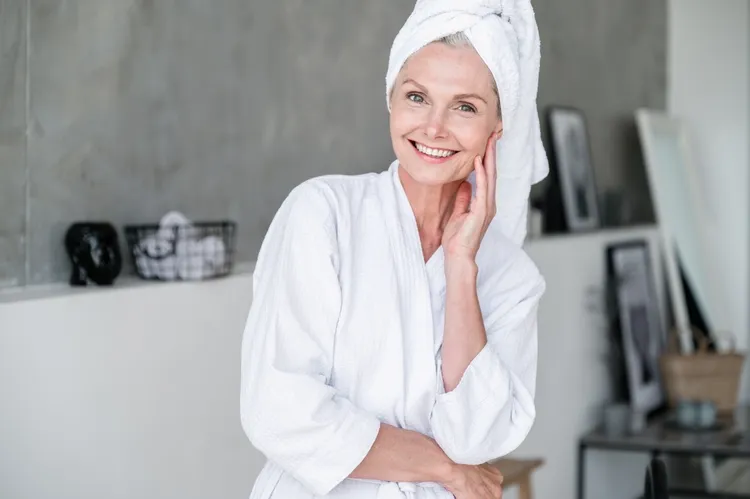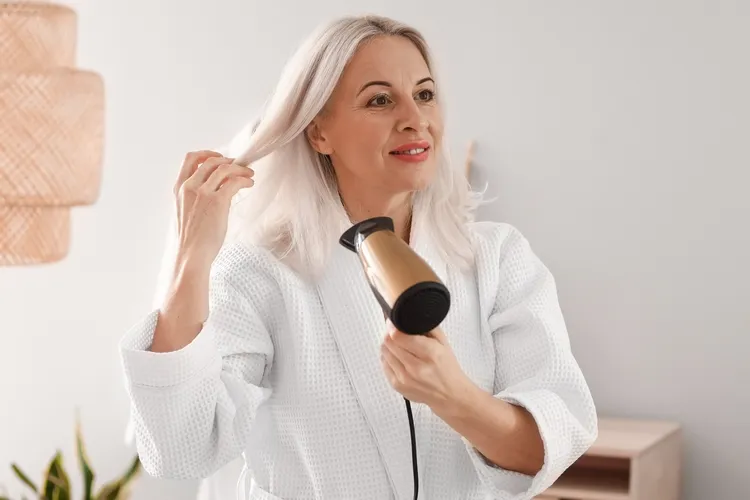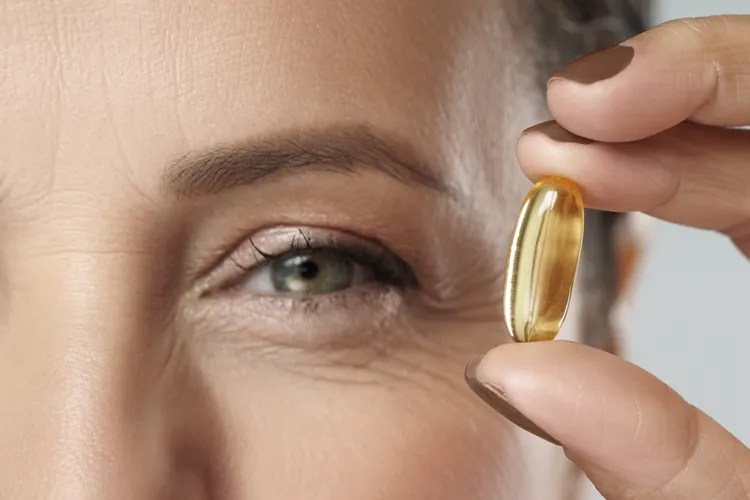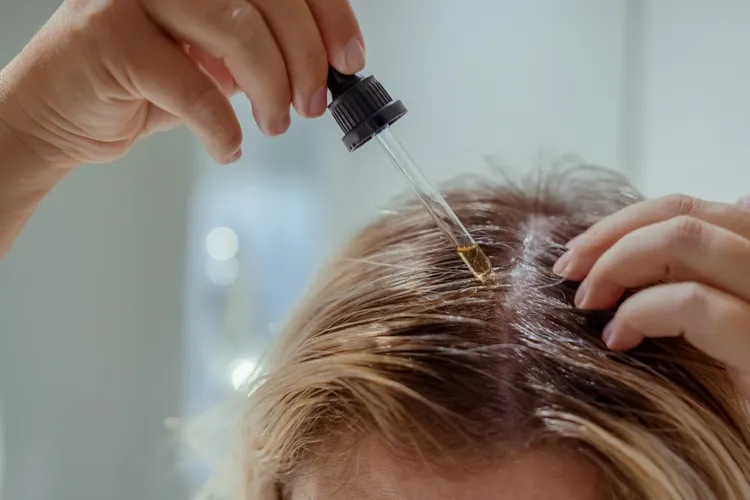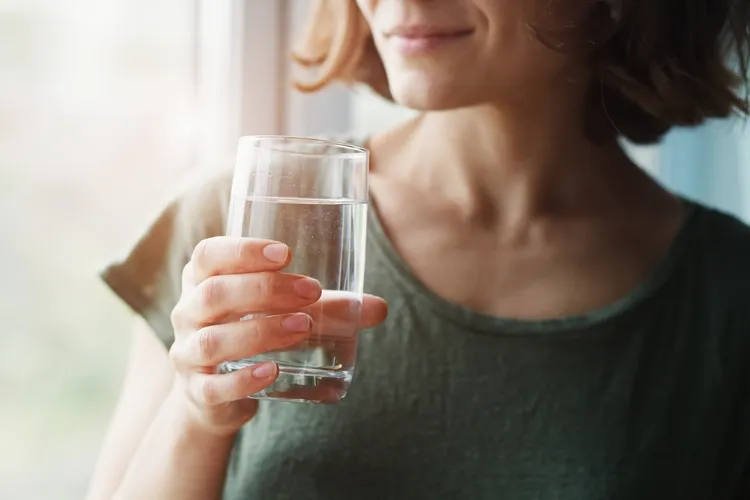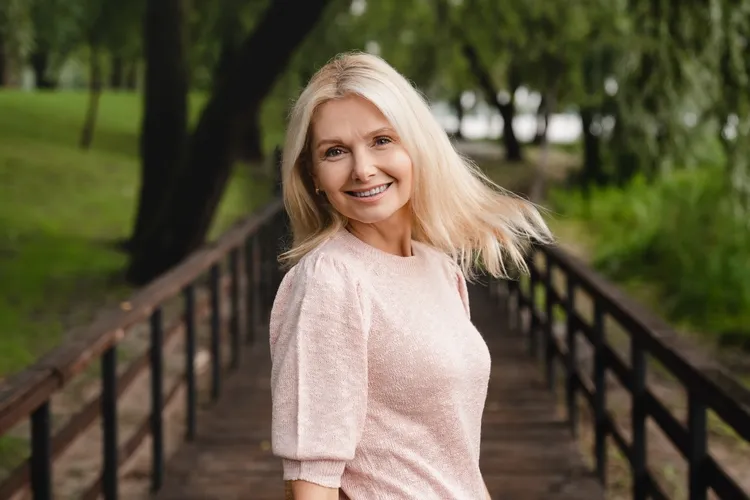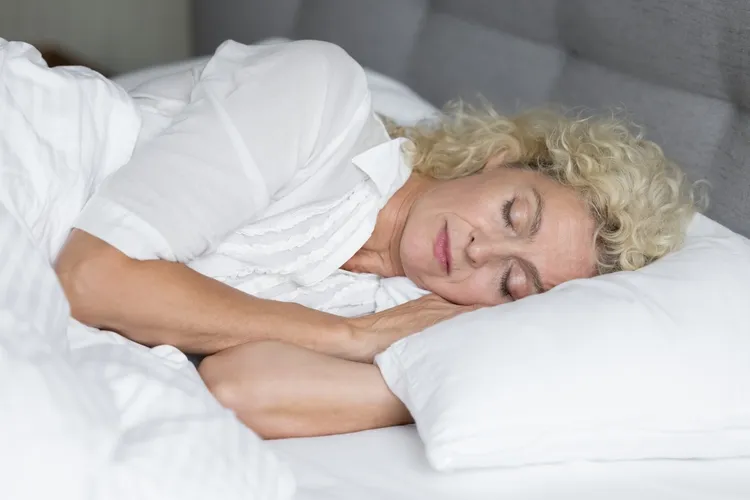During menopause, a woman’s body undergoes significant changes. The aging processes affect the whole body, including the hair. Hot flashes, weight gain, mood swings – all of these symptoms are typical of the period. But how does menopause affect the hair? What to do and how to keep your hair healthy during menopause? Let’s find out!
How Does Menopause Affect the Hair?
Hormonal changes affect the appearance of women. Due to estrogen deficiency during menopause, the metabolism slows down. Less elastin and collagen are produced, skin firmness decreases, and this results not only in skin changes but also in dysfunction of hair follicles. How does menopause affect the hair? It’s the period when the hair loses its shine and volume, and we see the first silver strands. In addition, many women notice that their hair texture is changing – it becomes thinner, dry, and brittle. Dry or itchy scalp is another unpleasant effect, but perhaps the most upsetting manifestation of menopause is hair loss.
How to Keep Your Hair Healthy During Menopause?
Understanding that these are normal, age-related changes is important. Of course, every organism is different, and you may experience different changes compared to your friends. Our genetics as well as lifestyle and general health will affect the way we go through the process. There are some easy steps that you can take, so let’s see how to keep your hair healthy during menopause!
Also read: Hair Care in Winter: How to Protect Your Mane from Cold Weather Shocks?
Change Your Hair Care Products
What is the best shampoo for menopausal dry hair? Gentle hair care is essential, and your goal is to preserve the natural oils, so you should look for sulfate- and silicone-free shampoos and conditioners. Products for dry or damaged hair usually contain moisturizing oils, which are important for the health of menopausal hair. Opt for shampoos and conditioners with coconut, avocado, or argan oil.
Avoid Heat Hair Styling
Heat styling can be very damaging to hair during menopause due to the fact that the strands become thinner and lose their natural oil. Avoid curling irons or straighteners, or at least do your best to limit their use. Should you need to use these tools, make sure to apply a heat protectant. If using a curling iron or straightener, use the lowest heat setting to prevent hair damage.
Also read: Epsom Salt Beauty Benefits: How to Use It for Skin and Hair Care?
Vitamins for Hair Loss During Menopause
Vitamins for hair loss during menopause are also important. The most effective vitamins for hair health and beauty are B vitamins; B2 is useful for brittle ends, and B6 is good for dandruff. Pay special attention to replenishing vitamins A, D, C, and E.
Apply Hair Masks with Natural and Essential Oils
Hair masks are an excellent way to provide additional hydration and nourishment to your strands during menopause. Coconut and argan oil massaged into the scalp stimulate blood circulation and hair growth. What essential oils are good for hair loss during menopause?
- Rosemary oil is an excellent ally to prevent hair loss;
- Lavender essential oil promotes hair growth;
- Peppermint oil stimulates the scalp’s blood flow and, respectively, affects positively the strength of the hair follicles.
- Thyme is known for its anti-inflammatory properties, which help slow down hair loss and promote hair growth.
Hydration Is Very Important
Drink water! Staying hydrated is essential not only for your hair but for your skin health as well. Make sure to drink at least 7-8 glasses of water every day.
Also read: Top Gray Hair Care Tips – How to Maintain a Stylish and Healthy Mane?
Eat Healthy
For maintaining good health, our diet is hugely important. A balanced diet rich in nutrients that are good for hair will help you during menopause. What are the best foods to consume? Protein- and vitamin-rich foods , as well as omega-3 fatty acids, promote hair health. Consume lots of fruits, leafy greens, vegetables, fatty fish, eggs, chicken, nuts, avocado, spinach, kale, etc. Give up alcohol and smoking, and consume less coffee.
Keep an Active Lifestyle
It may sound like something very simple, but being active is very important. It doesn’t mean that you need to run a marathon! But physical activity helps lower stress, and believe it or not, a walk in the park or a yoga class can do wonders for your overall health and your hair.
Change Your Pillowcases
Something as simple as changing your pillowcases can play an important role and help to keep your hair healthy during menopause. Silk is the best material, as it is very tender to hair (and skin), it has hydrating properties, and also reduces breakages.
Also read: Hair care after 60: You can still have beautiful and healthy hair at this age!

